scite and Manuscript Manager partner to improve the peer review process
Thu Jan 21 2021We are excited to announce that scite has now partnered with Manuscript Manager, a fully-featured peer review system that is used by more than 275 academic journals around the world.
This partnership brings scite’s Reference Check tool to Manuscript Manager’s peer-review platform, making the peer-review process faster, more enjoyable, and more reliable for Manuscript Manager’s more than 900,000 users. Reference Check automatically detects and extracts references and citation statements, allowing reviewers to easily see how an article cites the references in their paper, and how other articles have cited the same references. It also shows the user if a reference has received an editorial notice such as a retraction, correction, etc.
How Can scite Help Improve Manuscript Manager and the Peer Review Process?
To see an example of how this partnership can improve the peer-review process at Manuscript Manager, let’s look at the Reference Check report for an article published in a journal that uses Manuscript Manager, Oncology: “Multicenter Cohort Study to Assess the Association between Changes on Imaging and Outcome after Regorafenib Treatment (KSCC1603)” by Oki et al. 2020.
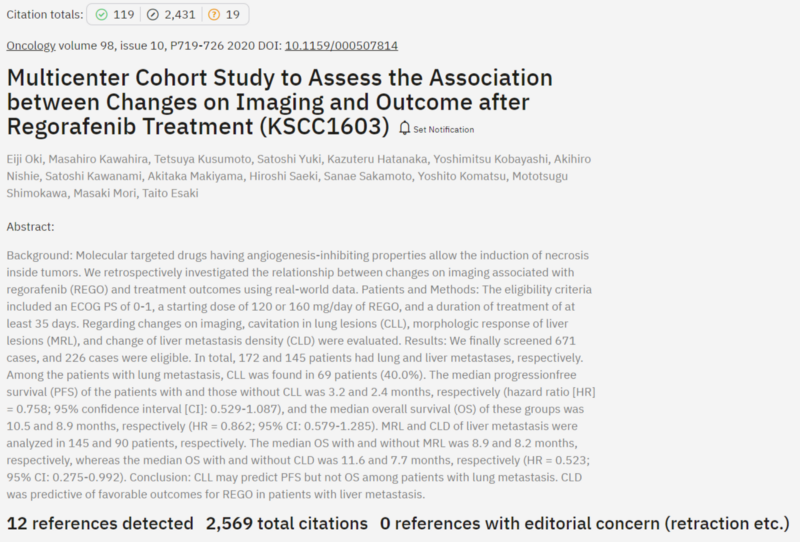
Running a Reference Check on the manuscript by Oki et al. 2020 shows the reviewer, for example, that Oki et al. cite an article that “found that morphologic assessment was a better predictor of OS (overall survival) after anti-angiogenesis treatment,” and that the authors use this finding to justify the use of morphological response as part of their analysis.
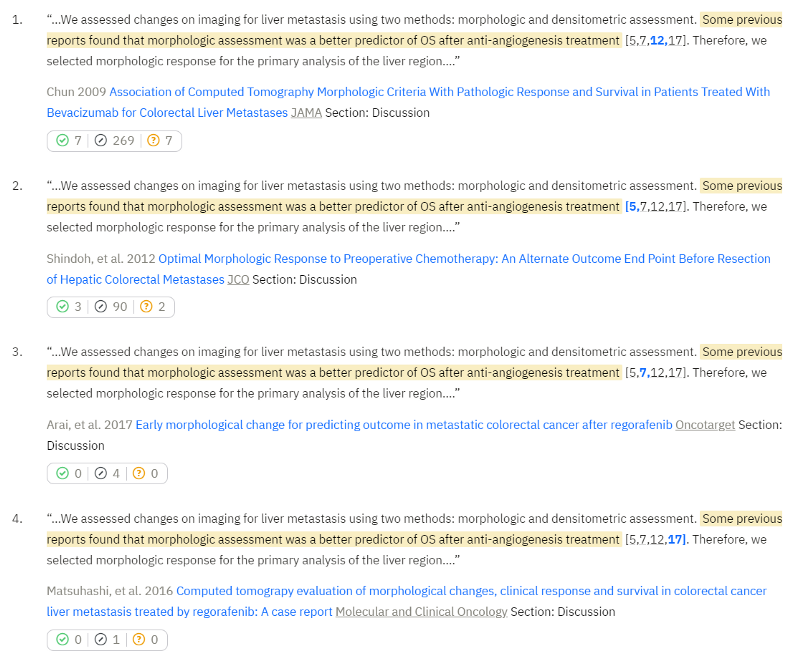
With Reference Check the reviewer can instantly see, from the badge, that the referenced article (Chun et al. 2009) has received 7 supporting and 7 disputing citation statements in the scite database. Since it has a relatively high number of disputing citations, the reviewer might suspect that Oki et al. 2020’s citation of this article in support of their claim is not well-founded.
At least, given that the referenced article has been disputed as much as it has been supported, the claim that “morphologic assessment was a better predictor of OS after anti-angiogenesis treatment” warrants a deeper look so that the reviewer can use his/her own expert judgment. And with Smart Citations, this can be done in just a few minutes, instead of the hours or days that it would take to find such citations by manually combing through all citing articles, finding the relevant citation contexts, classifying each citation statement, etc.
From Reference Check to Smart Citations
After noting that there are disputing citation statements for an article referenced in the manuscript the reviewer may wish to examine the Smart Citations of the referenced article. By clicking the badge, the reviewer can navigate to the scite report for the reference in question and quickly see in greater detail how it was cited by others. An example of supporting and disputing citations that this reference received is shown below:
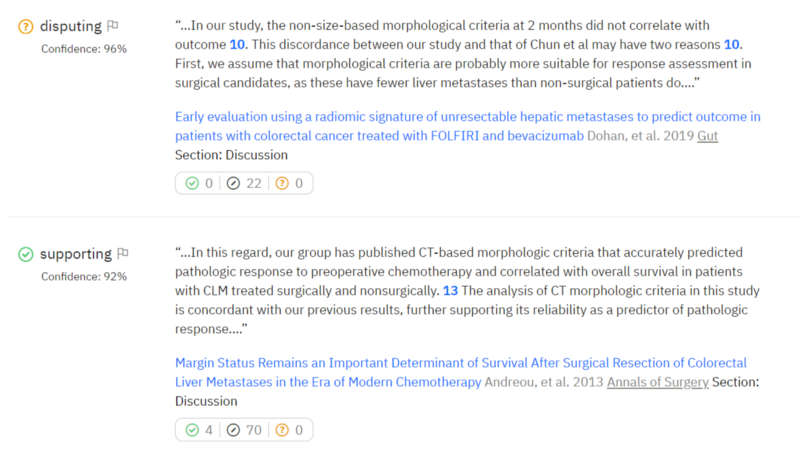
This is just one example of the Smart Citations for one cited paper. Imagine trying to find and analyze these citation statements manually for each reference —� even experts in the field will find this a challenging, if not impossible task. Now, doing so is easy: scite automatically finds, displays, and classifies each citation statement, allowing the review process to be both more rigorous and less time-consuming.
See if an article has been retracted or received other editorial notices
Reference Check also shows the viewer all editorial notices for the references within an article. Take for example this article from Kudryashova et al. 2019 that was published in Developmental Neuroscience, a journal which also uses Manuscript Manager for peer review. The authors cite an article that had already been retracted, which Reference Check automatically detects:
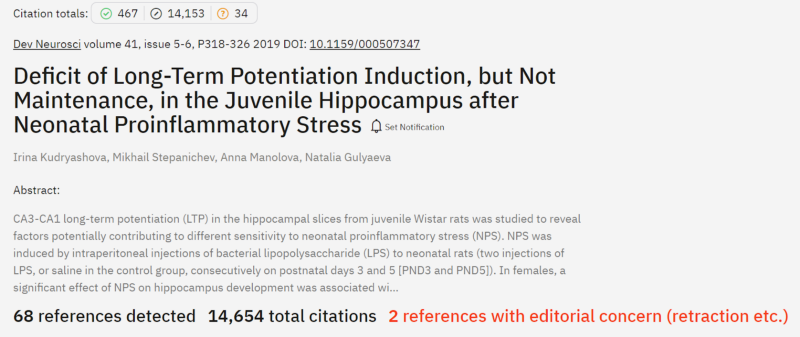
Kudryashova et al. 2019 cite Kellom et al. 2012, which was retracted in 2017, in support of the claim that “hippocampal injury and synaptic loss after neonatal LPS injections was reported in both juvenile and adult rats”, and do not acknowledge the retraction:
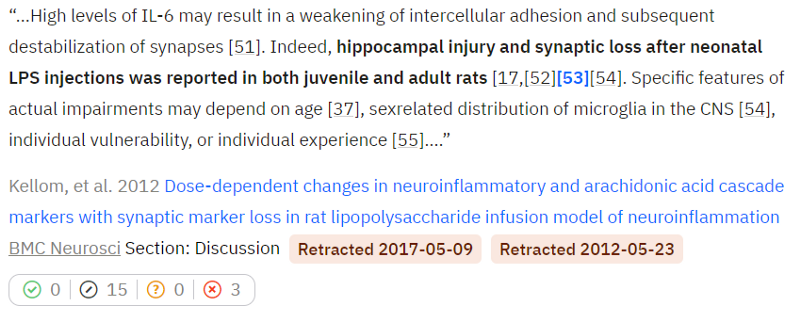
Citing articles that have already been retracted occurs more often than you might expect — to see more examples, check out the scite Ref Check bot on Twitter, where we find and share these articles:
This new partnership ensures that all of scite’s citation data is an available option for all journals, publishers, and reviewers that use Manuscript Manager. Now, reviewers can spend more time evaluating the quality of an article, and less time manually sifting through dozens of papers to find and evaluate the relevant citation statements.
Let’s keep making science more reliable:
- Read more about Reference Check
- See an example Reference Check report
- Watch a short video explanation

